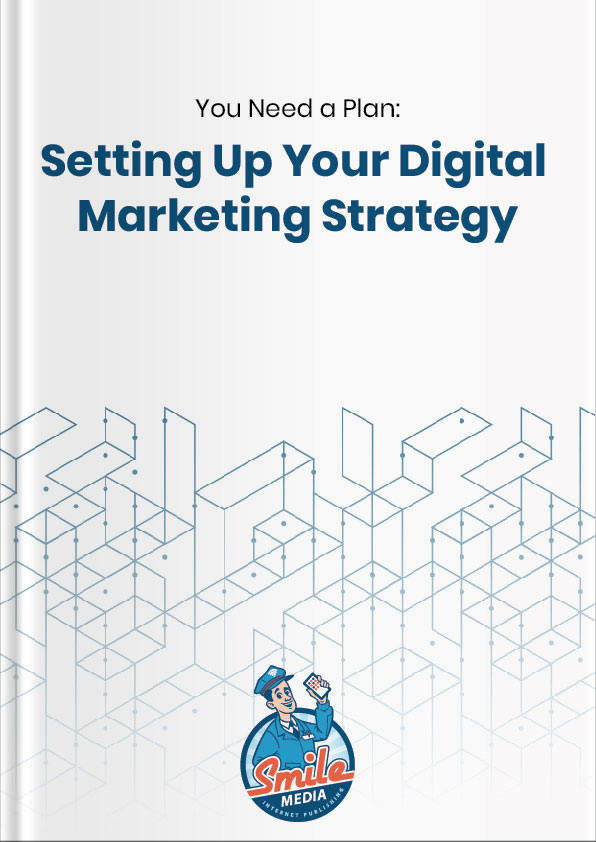At this point, if you don’t work in the marketing industry, you’re probably thinking, “What? They’re not the same thing?” It’s okay. If you didn’t know there was a difference between “content marketing” and “content strategy” – never mind “content marketing strategy” – you’re not alone.
Don’t fret. The differences between each term are actually quite simple. Recognizing that each term has a different meaning, and purpose, is where most people fail. So, go ahead and give yourself a high five, because you are now more educated than most of the general public on this topic!
What is Content Strategy?
A content strategy serves as an outline for all members of an organization involved in content creation, topic development, and content publishing on behalf of the company. An overall content strategy often serves as a guideline for creating content associated with a brand, which can be used for multiple purposes and to achieve a variety of goals. The most effective content strategy is one focused on optimizing and streamlining the user experience as they interact with a brand across multiple online platforms.
Elements of a thoughtful content strategy may include the following (and more):
- Target audience(s)
- Potential topics
- Focus keywords
- Content types
- Content length requirements (by type)
- Brand voice
- Brand messaging
- Call-to-actions
- How and where to store content
- Individuals responsible for creating, editing and publishing content
- Where content is stored and access permissions
If this definition sounds general, that’s because it is. Content strategy is a general term for all things related to the strategic development and distribution of branded content.
What is Content Marketing Strategy?
A content marketing strategy is like a content strategy, but more specific in its purpose. While a general content strategy for your organization may include internal content (employee memos, employee intranet content, employee handbook, etc.), as well as general business communication with customers (customer service emails/letters, basic website content, customer portal content, etc.), a content marketing strategy is based solely on outward-facing content designed specifically for content marketing purposes.
The terms content marketing strategy and content strategy are often used interchangeably, which is where much of the confusion in understanding these terms comes from. The goal of your content marketing strategy is to define how you will achieve specific content marketing goals. For example, what results are you looking to achieve with your content marketing? Are you trying to expand your brand reach? Increase lead generation? Increase lead conversion? Increase sales and profits? All of the above?
Your content marketing strategy should define how you will achieve your specific goals by using content marketing tactics such as blogging, longform content, eBooks, whitepapers, case studies, infographics, etc. It is crucial that you have a strategy outlined before you begin creating content marketing pieces, to ensure that all the content you create is developed with your goals in mind.
Elements of a thoughtful content marketing strategy should match those of a content strategy, but also include the following:
- Strategic keyword research and analysis
- Topic generation based on target audience and goals
- Content volume and frequency
- Persona development
- Content creation and publication schedule (editorial calendar)
- Milestone planning and tracking
- Targeted email campaign development
- Publication targeting
- Social media advertising
- Specific marketing goals and metrics
What is Content Marketing?
Last, but not least, let’s talk about content marketing. Content marketing refers to the act of creating content, editing content, and publishing content according to your planned content marketing strategy. Content marketing is the development of all the physical content that is developed to execute the content marketing strategy you created to achieve a specific goal or set of goals.
Content marketing includes every individual piece of content involved in the content marketing process, from the Facebook ad content which convinces you to click through to carefully crafted landing page content; to the call-to-action button content inspiring visitors to download an eBook or whitepaper; and even the submission form which provides access to the downloadable content after entering the required contact information.
For example, if you’re looking to create an email marketing campaign to increase lead generation, you may choose to create subscriber landing page, where visitors are encouraged to subscribe to your email list/newsletter/updates, or whatever you want to call it. Each subscriber becomes a potential lead, that you may otherwise never know about.
To maximize the visibility of this landing page, you may also choose to create a Facebook ad that targets your ideal audience and encourages them to click through to your landing page. Once they’ve subscribed to your email list, they may land on a Thank You page, which also suggests similar pages of your company’s website that they find interesting. This may include specific blog articles, individual services pages, pricing information, and more.
Content Marketing Sounds Easy
But it’s not. Whether or not you consider yourself to be a good writer, creating a content marketing strategy and the developing high-quality content to execute it successfully is no easy task. Creating an effective content marketing strategy requires an in-depth understanding of your target audience, as well as the skills to write high-converting content that inspires your readers to take action. According to NewsCred Insights, “The average reader only spends 37 seconds reading an article or blog post.” You better make that 37 seconds count!
Unfortunately, many organizations lack the resources to create the quality of content they need to get significant results from content marketing, and they often realize this too late in the game. If you want to see real results and realize your goals for business growth and improvement, look to one of the top Boston web design companies, SMILE media, for help developing and implementing a strategy. With a skilled team of professional digital marketers behind you, you can get the most out of your content marketing efforts.
Contact SMILE media today to get started!








